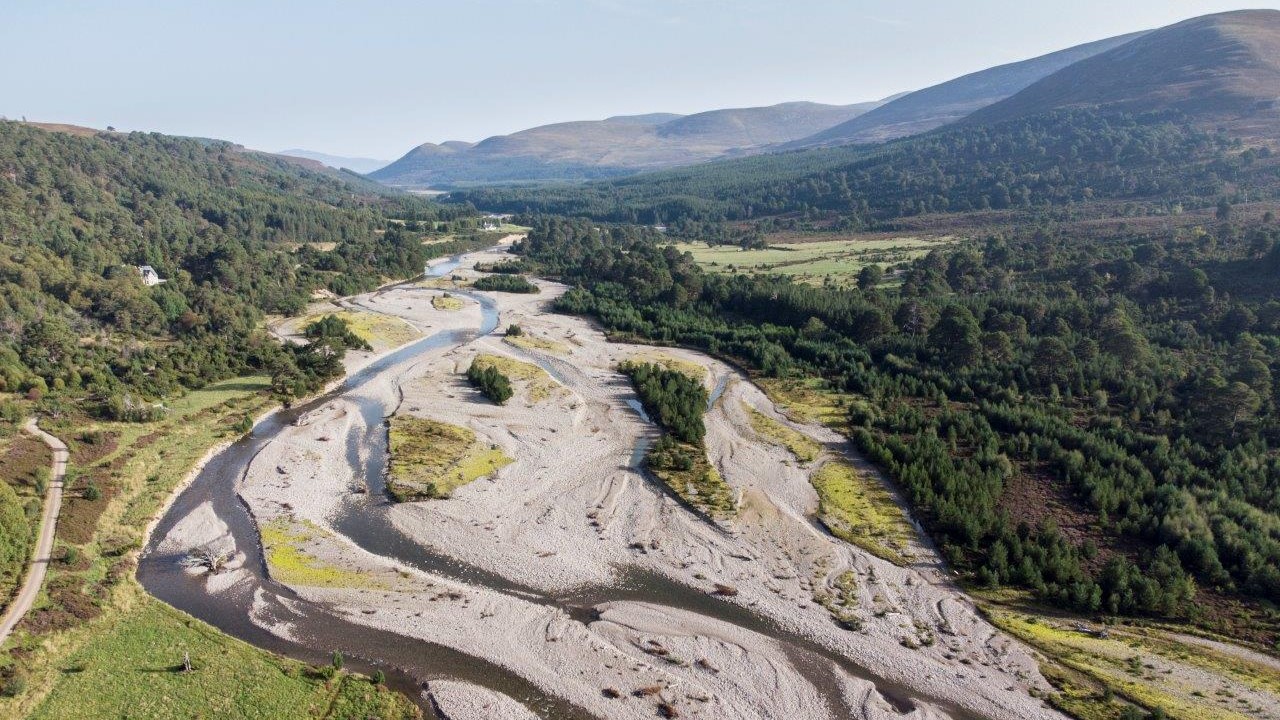Key Scottish industries are being encouraged to do more to adapt to climate change after researchers found that the number of water scarcity events in Scotland could double by 2050.
The research, led by The James Hutton Institute, focused on how climate change is impacting water availability for the farming and whisky sectors, which could be left increasingly high and dry.
In some catchments, it found that surface water scarcity events, where river levels drop to significantly low levels, could increase in frequency from one every five years to every other year – or even more often, potentially meaning more restrictions on using these waters.
The study was commissioned by Scotland’s Centre of Expertise for Waters (CREW), which is based at the Hutton, with partners at Scotland’s Rural College, the University of Aberdeen and the British Geological Survey.
Dr Miriam Glendell, who co-led the work at the Hutton, said:
“We found that, for many, water scarcity is already an increasing issue. At critical times of the year, even short periods of water shortage could lead to vegetable and fruit crop failure.
“Some are already taking measures to adapt, particularly in the distilling sector, where technical advances could help reduce their need for water for cooling, but many could be at risk if they don’t take more action.
“Our work suggests more information would help them, about resources, but also adaptation strategies they can take, as well as help funding these and collaborating across catchments over resources.”
The study found that April/May and late August/September, in particular, are expected to be noticeably drier, potentially impacting crop yields and livestock gains.
Recommendations included using more efficient irrigation methods, avoiding the introduction of more water demanding crops, increasing water harvesting and storage of water during wetter months.
While using groundwater was seen as a potential way to address water shortages, more information was needed on where and when this could be a viable option. In some areas, summer groundwater levels have been lower in recent years, compared with previous decades. Areas with low groundwater storage capacity and decreasing groundwater recharge are likely to become increasingly vulnerable to drought.
To support these areas, British Geological Survey and the University of Aberdeen developed a new framework to help estimate groundwater resilience.
The report also suggests that increased monitoring could help, as well as improved coordination of water resources use across catchments and the provision of adaptation advice and funding was also recommended.
Dr Kirsty Blackstock, who co-led the work at the Hutton, said:
“Water scarcity is a clear risk to business resilience and, once aware of these risks, participants were looking for solutions. But more information is needed on potential returns on investment and how the solutions can fit in with existing farm practices. Clarity on funding opportunities for these interventions in the new Agricultural Payments Tiers would also help them to adapt.”
The project team also recommended cross-sector coordination to prepare for future water extremes and a greater role for river catchment partnerships to coordinate use of water resources at landscape scale.
A link to the report can be found Future Predictions of Water Scarcity in Scotland: Impacts to Distilleries and Agricultural Abstractors.



